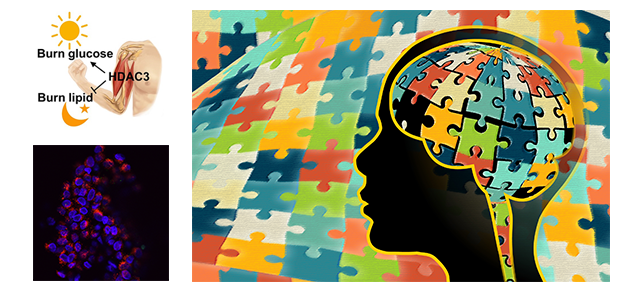Dawn-to-dusk dry fasting could alleviate the health risks of individuals with an increased body mass index
 In a recent study published in Metabolism Open, Baylor College of Medicine researchers discovered that dawn-to-dusk dry fasting (no eating or drinking from dawn to dusk) can be beneficial for those who have an increased body mass index (BMI).
In a recent study published in Metabolism Open, Baylor College of Medicine researchers discovered that dawn-to-dusk dry fasting (no eating or drinking from dawn to dusk) can be beneficial for those who have an increased body mass index (BMI).
“When an individual has an increased BMI, inflammation can happen as well as metabolic dysfunction, high blood pressure and insulin resistance,” said Dr. Ayse Leyla Mindikoglu, principal investigator of this study and professor in the Margaret M. and Albert B. Alkek Department of Medicine – Section of Gastroenterology and Hepatology.

This study, which observed individuals with a BMI equal to or greater than 25 kg/m2 during a 30-day religious fasting period, showed a significant reduction in inflammatory cytokines that could contribute to health risks. Inflammatory cytokines are molecules that promote inflammation and are produced by immune cells.
“We measured inflammatory cytokines before and after the individuals fasted and found that almost all of them had decreased levels either within the fourth week of 30-day dawn-to-dusk dry fasting period or within two weeks after 30-day dawn-to-dusk dry fasting,” Mindikoglu said.

The benefits of dawn-to-dusk fasting
We show that dawn-to-dusk dry fasting is beneficial, not only for weight management, but it also can decrease a patient’s risk for diabetes, heart disease and other complications,” said Dr. Sridevi Devaraj, co-author and professor of pathology and immunology at Baylor.

Dawn-to-dusk dry fasting, unlike other forms of intermittent fasting, aligns meal times with the body’s circadian rhythm. This fasting method involves eating two meals a day at specific times: one at dawn and the other at dusk.
Mindikoglu previously studied the health benefits of dawn-to-dusk dry fasting on metabolic syndrome and immune cells. She and Devaraj hope to continue studying this type of fasting and its impact on all levels.
“We would like to see how this type of fasting can affect cancer and aging,” Mindikoglu said.
“We’ve shown in previous studies that dawn-to-dusk dry fasting can improve metabolic syndrome, but we haven’t looked at the neurological impact. We want to know if this can improve a person’s mental health,” Devaraj said.
Additional contributors to this work include Zahraa Al lami, Miray Kurtca, Moin U. Atique, Antone R. Opekun, Mohamad S. Siam, Prasun K. Jalal, Bijan Najafi, all with Baylor College of Medicine.
Research reported in this publication was supported in part indirectly by National Institute of Diabetes and Digestive and Kidney Diseases of the National Institutes of Health under award number P30DK056338, which funds the Study Design and Clinical Research Core of the Texas Medical Center Digestive Diseases Center, and National Institute on Aging of the National Institutes of Health under award number U19AG065169. Research reported in this publication was also supported in part by Dora Roberts Foundation and an unrestricted grant from D.R. and G.P. Laws. The content is solely the responsibility of the authors and does not necessarily represent the official views of the National Institutes of Health.
Click here to read the full paper.
Follow From the Labs on X @BCMFromtheLabs and Instagram!



